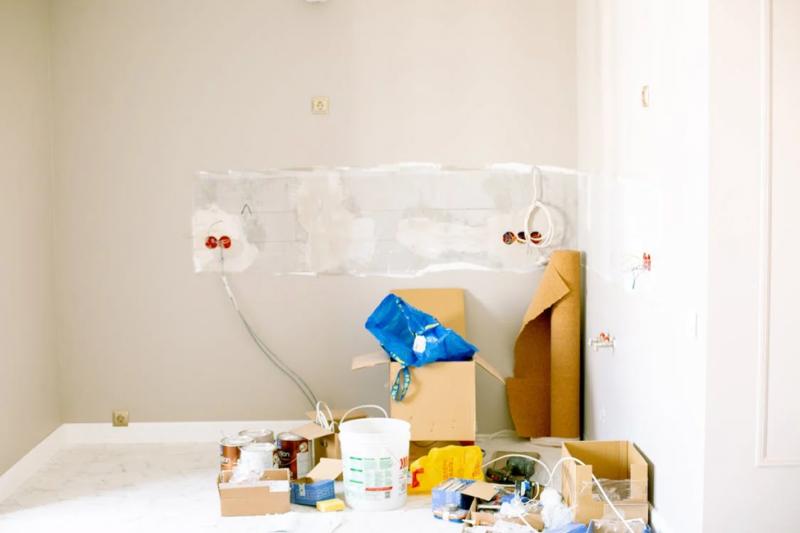10 Basic House Wiring Rules to Avoid Big Hazards

Some basic house wiring rules should be followed during electrical jobs. These exist to protect you from accidents. Want to know more about these rules? Keep reading below.
Staying away from water, fitting the right lights into the fixtures, and having GFCI protection are some of the basics of household electrical wiring that you can follow. You should also be careful about the safety of the electrical outlets and consult an electrician for the tricky stuff. This article elaborates on more of these tips.
1. Make Sure the Electrical Appliances Are Dry
Electric appliances and water is a deadly combination that can easily lead to hazardous accidents. Never use power tools in wet clothes or a wet situation. Keep electrical tools in dry places and far from water or moisture. It's best if the electric connections are kept away from damp places.
If you accidentally drop any electric appliance in the water, remember to shut off your house power switch from the electric system before unplugging or taking it out of the water. It's also safe to consult an electrician and make sure that the appliance is okay to use after the incident.
2. Safeguard the Electrical Outlets
Safety outlets reduce the number of hazardous accidents that may happen when you have young children. These devices reduce the chance of getting shocked if your kids stick out their fingers and small things in the outlets.
Check your outlets for sockets or plugs that are loose. Loose sockets cause fire or shock when touched.
Don't overload your power outlet with plugs and sockets, and use the correct wire for amps. It's better to use three-pronged sockets instead of two-pronged ones to avoid risk.
3. Use the Right Bulb for the Right Fixtures
Buy the right bulbs for the light fixtures and lamps with the right wattage. A bulb with a higher wattage than your lamp or light fixture will cause overheating and start a fire in many cases. For example, if there’s a 60-watt lamp and you use a 90-watt bulb for it, it will pull more energy and will cause overheating eventually.
So, it's better to check your house's wattage limit and then buy the right bulbs for lighting your home.
Make sure your bulbs are fitted right and secured to avoid risks.
4. Protect Against Electricity Surges
It's wise and better to switch off unnecessary electric appliances such as TVs or computers when they are not being used. This will lessen the chances of overheating and safeguard against power surges that might damage the electrical appliances or start a fire outbreak.
Take help from surge protectors when your electronics are switched on; this will lower the chances of accidents in areas with unstable power supplies.
5. Carefully Handle the Electric Cords
Certain cords are dangerous to use like cords that run under the carpets, go across any furniture, are located in messy areas, or are nailed to a wall.
Check the electrical cords regularly to see if they're frayed or damaged, and don’t use them if they are.
The extension cord should be treated as a last resort and temporary measure.
Don't pull cords by the wire; instead, pull them by their plugs to get out of the sockets.
6. Get GFCI Protection
Casualties due to electric shocks have decreased drastically with the use of Ground Fault Circuit Interrupters (GFCI).
GFCI are devices that automatically switch off the power if any mismatch in the power supply is detected. These are most likely to be set up in areas such as washrooms and kitchens.
7. Don't Ignore Frequent Trips in Circuit Breakers
A circuit breaker trip happens when there are any short circuits or any overload in any power supply. If this happens repetitively, then it's an obvious sign that something is wrong that could cause a hazardous safety issue.
Things that cause frequent circuit breaker trips are faulty appliances, frayed or damaged wires, and impaired circuit breakers. Ignoring the circuit breaker trips can result in greater electrical problems.
8. Get Electricians for Electrical Jobs
Never try to fix any electrical repairs just to save some dollars. This will cause serious accidents later. DIY upgrades or repairs of a faulty appliance are also hazardous.
If you fix an electric appliance by yourself, you won't know the hidden faults that can cause a fire later.
Getting electric shock is also a possibility when you perform DIY repairs at home alone. Consider hiring an electrician and leave the work to them.
9. Use Good Quality Products
Low-quality cheap products that don't meet the safety requirements can cause dangerous accidents. These products can cause greater damage to your home appliances.
Be cautious and buy products from trusted sources that have proper safety provisions.
10. Get Professional Safety Inspections
If you doubt the safety of your home wiring system, then a professional safety inspection is a must for the peace of your mind, and the well-being and safety of everyone in your home.
Remember to inspect the wiring once every five years with the help of a professional, especially if you have aluminum wiring at home. Hiring professionals for home maintenance is always a better idea than doing things yourself.
Conclusion
It is better to consult electricians while fixing the wiring of the house. They know what to watch out for while doing electrical work.
Knowing the basic rules of electrical wiring can save you from accidents in case you’ve taken matters into your own hands. This guide has hopefully taken you one step further in that direction.
More to Read:
Previous Posts:










